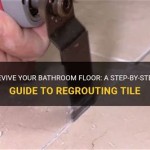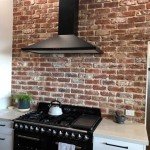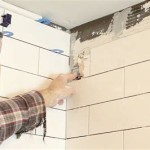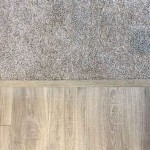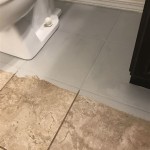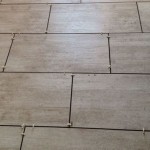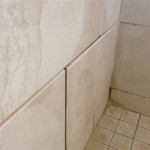Do I Have To Use Backer Board For Tile?
The question of whether tile backer board is mandatory before installing tile is a common one for both novice and experienced DIYers. The simple answer is that while not *always* required, using backer board is almost always the best practice, particularly in wet areas like bathrooms and kitchens. The decision depends on several factors, including the location of the tile installation, the type of substrate that exists, and building code requirements.
Backer board, also known as cement board or tile underlayment, is a water-resistant material specifically designed to provide a stable and durable surface for tile installation. Unlike drywall or plywood, backer board is not susceptible to water damage, rot, or mold growth, making it an ideal substrate in moisture-prone environments. The primary function of backer board is to create a flat, rigid, and dimensionally stable surface to which tile can be adhered effectively. This ensures a long-lasting and aesthetically pleasing tile installation.
Understanding when and why backer board is recommended, or even mandated by local building codes, is crucial for ensuring a successful tiling project. This article will delve into the conditions under which backer board is essential, explore alternative options, and provide guidance on selecting the appropriate type of backer board for specific applications.
Key Considerations for Using Backer Board
Before deciding whether to use backer board, consider these crucial aspects of the project:
1. Location of the Installation: The most significant factor determining the necessity of backer board is the location of the tile installation. Areas exposed to moisture, such as showers, bathrooms, and kitchen backsplashes, almost always require backer board. In these environments, substrates like drywall or plywood are prone to water damage. The constant exposure to humidity and occasional water splashes can cause these materials to swell, warp, and eventually rot, compromising the integrity of the tile installation. Backer board, being water-resistant, mitigates these risks, providing a stable and long-lasting base for tiles. Conversely, in dry areas like living rooms or hallways, the need for backer board may be less critical, although it can still provide benefits.
2. Existing Substrate Condition: The condition of the existing substrate plays a vital role in determining whether backer board is needed. If the existing wall or floor is uneven, damaged, or unstable, adding a layer of backer board can create a smooth and level surface necessary for proper tile adhesion. Backer board effectively addresses issues such as cracks, holes, or loose material that could otherwise compromise the tile installation. Additionally, if the existing substrate is made of materials unsuitable for tile adhesion, such as painted surfaces or wallpaper, backer board provides a clean and compatible surface. Properly installed backer board will adhere to studs or floor joists, allowing for weight distribution and preventing tile cracking due to movement.
3. Type and Size of Tile: The type and size of the tile being installed also influence the decision regarding backer board. Larger and heavier tiles require a more rigid and stable substrate to prevent cracking or detachment. Backer board provides the necessary support for these types of tiles, ensuring a durable and long-lasting installation. Smaller, lighter tiles may be more forgiving and can potentially be installed directly onto certain substrates, provided they are in good condition and properly prepared. Additionally, the type of tile adhesive used (mortar) can also impact the need for backer board; some mortars are specifically designed for use with backer board, enhancing the bond strength and water resistance of the installation.
Alternatives to Backer Board and When They Might Be Acceptable
While backer board is generally the recommended choice, certain circumstances allow for alternative materials to be used as a tile substrate. It is important to carefully evaluate these alternatives and ensure they meet the specific requirements of the project.
1. Existing Cement or Concrete Surfaces: In some cases, if a floor or wall is already constructed of cement or concrete, and the surface is level, structurally sound, and free of cracks or imperfections, tile can be installed directly onto the surface. However, thorough preparation is still essential. This includes cleaning the surface to remove any dirt, debris, or loose particles, and applying a bonding agent to improve adhesion between the concrete and the tile mortar. It is also crucial to assess the moisture content of the concrete, as excessive moisture can lead to tile failure. If moisture is a concern, a waterproofing membrane should be applied before tiling.
2. Waterproofing Membranes Over Plywood: In specific instances, particularly in flooring applications, plywood can be used as a substrate for tile, provided that it is adequately prepared and protected. This typically involves installing a layer of plywood that meets specific thickness and quality standards, followed by the application of a waterproofing membrane. The membrane creates a barrier that prevents moisture from penetrating the plywood, minimizing the risk of water damage. However, using plywood in this manner is generally not recommended for walls, especially in wet areas, as it is still more susceptible to moisture damage than backer board.
3. Specialty Waterproof Drywall: Some manufacturers offer specialized drywall products designed for use in wet areas. These products are typically treated with a water-resistant coating or have a moisture-resistant core. While they can be used as a tile substrate in certain applications, it is crucial to carefully follow the manufacturer's instructions and ensure that the product is specifically approved for tile installation. These specialty drywall products may not offer the same level of rigidity and dimensional stability as backer board, so they may not be suitable for larger or heavier tiles.
It's essential to note that relying on alternatives to backer board often requires a higher level of expertise and meticulous attention to detail. Failing to properly prepare the substrate or apply the waterproofing membrane correctly can lead to tile failure, costly repairs, and potential water damage to the underlying structure. Consulting with a professional tile installer is highly recommended when considering alternatives to backer board.
Types of Backer Board and Choosing the Right One
Several types of backer board are available, each with its own characteristics and suitability for different applications. Selecting the appropriate type of backer board is crucial for ensuring a successful and long-lasting tile installation.
1. Cement Board: Cement board is the most common type of backer board. It is made from a mixture of cement, aggregate, and reinforcing fibers, creating a durable and water-resistant material. Cement board is available in various thicknesses, typically ranging from 1/4 inch to 1/2 inch. It is suitable for both walls and floors and can be used in wet and dry areas. Cement board is relatively heavy and requires specialized tools for cutting and installation. It is also important to wear appropriate safety gear, such as gloves and eye protection, when handling cement board.
2. Coated Glass Mat Gypsum Panels: These panels offer a lightweight and durable alternative to traditional cement board. They consist of a gypsum core coated with a fiberglass mat, providing excellent water resistance and dimensional stability. Coated glass mat gypsum panels are easier to cut and install than cement board, making them a popular choice for DIY projects. They are suitable for walls and ceilings but may not be as strong as cement board for flooring applications.
3. Fiber Cement Board: Fiber cement board is made from a mixture of cement, cellulose fibers, and other additives. It is a durable and water-resistant material that is similar to cement board but typically lighter in weight. Fiber cement board is available in various thicknesses and can be used for both walls and floors. It is particularly suitable for exterior applications, such as tile siding or patios, due to its resistance to weathering and rot.
4. Foam Backer Board: Foam backer board is a lightweight and waterproof option made from extruded polystyrene foam coated with a cementitious layer. It is easy to cut and install, making it a popular choice for shower installations and other wet areas. Foam backer board provides excellent insulation and can help to reduce heat loss in bathrooms. However, it may not be as strong as cement board or fiber cement board and may require additional support for heavier tile installations.
When selecting the appropriate type of backer board, consider the following factors: the location of the installation (wet or dry area), the type and size of the tile, the substrate being installed over, and the structural requirements of the project. Consulting with a professional tile installer or building materials supplier can help to ensure that the correct type of backer board is selected for the specific application.
Proper installation of backer board is crucial for its performance. This includes using appropriate fasteners, such as corrosion-resistant screws or nails, and ensuring that the seams between boards are properly sealed with a waterproof joint compound or tape. Failing to properly install backer board can compromise its water resistance and lead to tile failure.

Tile Backer Board Benefits Uses Insulation

Tile Backerboard Material Options Fine Homebuilding

How To Install Cement Board For Tile Projects Diy Family Handyman

Busting The Myths Of Shower Tile Backer Board Pro Advice

6mm No More Ply Tile Backer Board

Tile Installers Select Hardiebacker Cement Board As Most Preferred Brand 2024 02 22 Stone World

How To Install Hardie Backer Cement Board On Floors James Pros

Benefits Of Tile Backer Boards In A Wetroom Ccl Wetrooms
Do I Need To Pva Tile Backer Board The Original Plasterers Forum Plastering A For Rendering

Tile Backer Board By The Sq M Square Metre Packs Floor Or Wall Hard Insulation Cement 1200mm X 600mm
Related Posts

